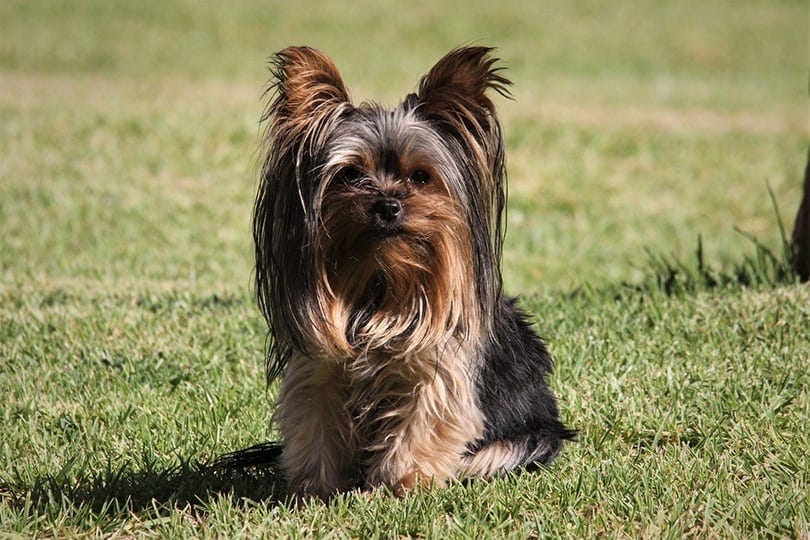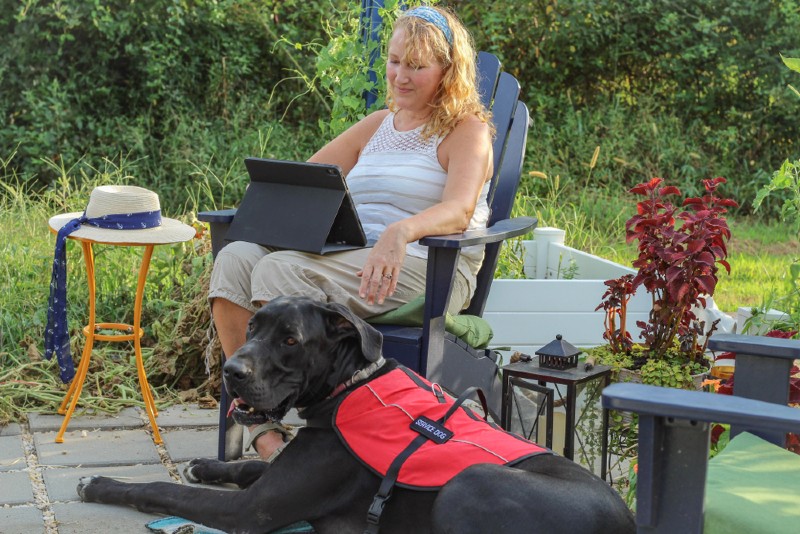Are Havanese More Aggressive Than Other Dogs? Facts, FAQ, & What to Do
By Brooke Bundy
Updated on
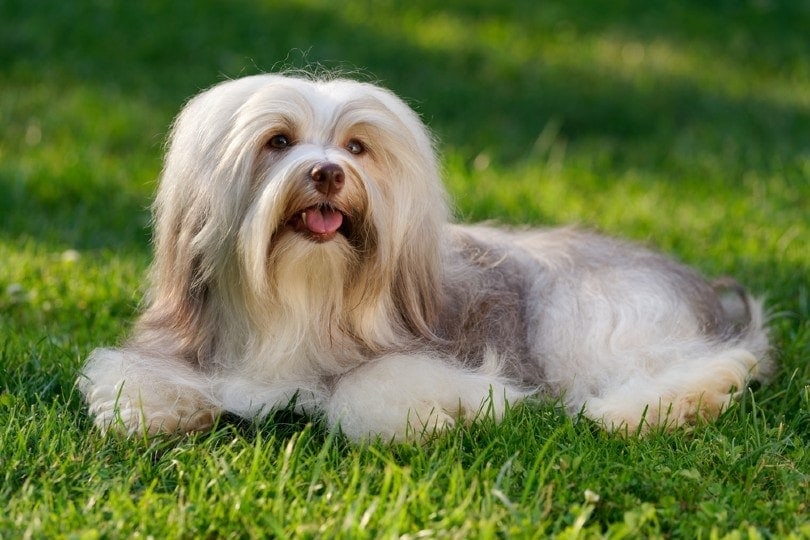
As a friendly member of the toy group, the cheerful Havanese delights their parents with their round cocoa-colored eyes, white fur, and silly antics. The Havanese is the only dog native to Cuba, and recently appeared on the American Kennel Club scene. Since they secured AKC breed status in 1996, the Havanese has become an increasingly popular choice for people who love small dogs. Their size, trainability, and enthusiastic love of people and other animals makes them an adaptable fit for most households. This happy-go-lucky breed certainly doesn’t have an aggressive reputation as a whole. However, environmental and physical issues can cause underlying behavioral issues in any breed.
Is the Havanese an Aggressive Dog?
A Havanese who’s healthy and happy isn’t likely to develop issues with aggression. In fact, they have excellent reputations for coexisting amiably with children and other pets. The poster child (or poster pup) Havanese possesses a moderate-high level of energy. They love to be the center of attention and will likely use their strength to coax you into playing a game of fetch or taking them on a walk. Since they were bred to be companion dogs, they’re eager to please and love human companionship.
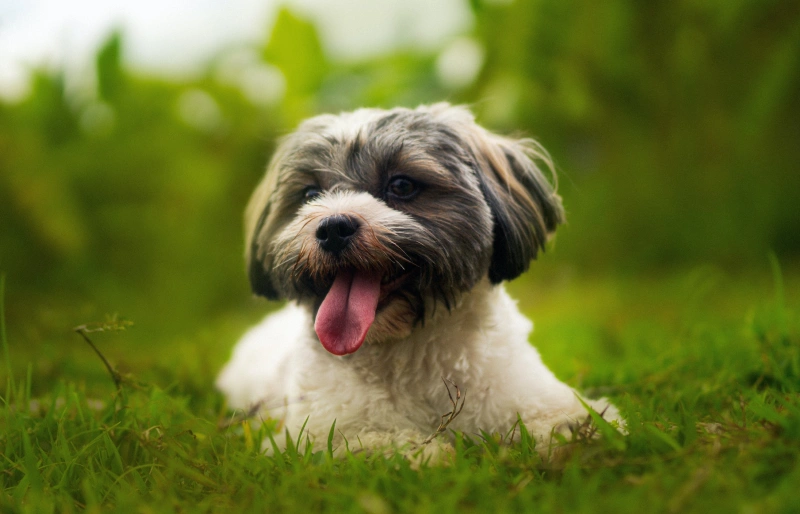
Why The Havanese May Develop Aggression Issues
The Havanese is one of the breeds least likely to become aggressive. However, like other small dogs, they may turn rebellious if their needs aren’t met.
As a companion animal, the Havanese takes offense at being left at home alone for long periods of time. They may see your frequent departures as a sign of rejection, and like a thwarted lover, they make “act out” as a way to get your attention and take their revenge. Urinating in inappropriate places, growling excessively, and barking sharply are all behaviors designed to grab your attention. Without proper training at a young age, these behaviors can quickly escalate out of your control.
Inadequate exercise or physical illness can also cause your Havanese to act out of turn. Don’t let this breed’s toy status fool you. The Havanese needs to walk for about 30 minutes each day. They also need one-on-one playtime indoors to prevent boredom, which can lead to destructive behaviors.
If your Havanese is acting unusually snippy, it might be time to take them to the vet. Unwarranted aggression can be a sign that they’re feeling sick.
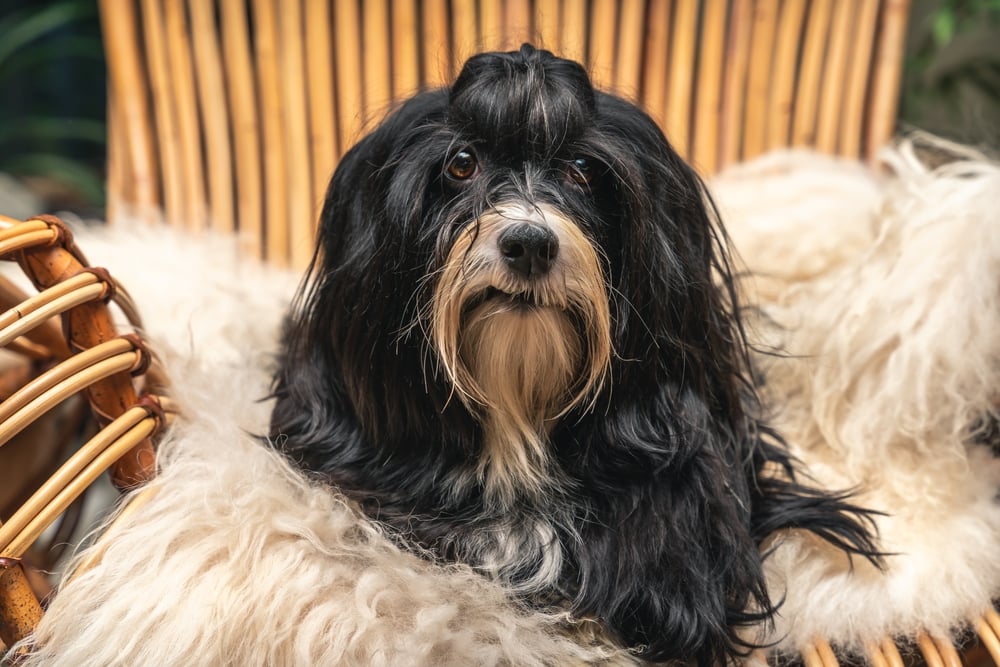
History of the Havanese
Hailing from Havana, Cuba, the Havanese has been the quintessential Cuban companion dog for hundreds of years. This breed directly descended from the Bichon Frise, which the Spanish imported to Cuba when they immigrated to the island in the 1500s. For the next 400 years, the Havanese enjoyed their status as the choice companion for Cuban farmers and upper-class citizens alike. The outside world knew little to nothing about this new breed, except for when they visited on vacation.
Political unrest during Castro’s revolution initiated a mass immigration of Cuban refugees to the United States. Eleven Havanese pups accompanied them on their journey, and together they founded the stock of the breed that’s so popular in the US today.
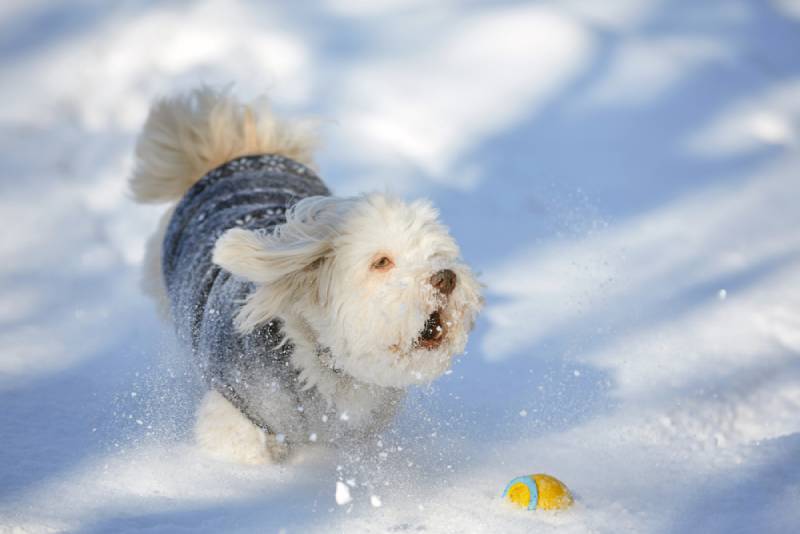
What to Do If Your Havanese Shows Signs of Aggression
Aggressive behaviors can become habits if you don’t deal with them promptly. It’s important to try to trace the root cause of your Havanese’s aggressive behavior so that you can solve the problem, gently train them, and move forward. Don’t punish your Havanese. If they’re seeking attention, negative correction is still a form of attention, and may feed the problem.
There are four main causes of aggressive behavior, and your Havanese may have more than one. You should always start your investigation by noting when the behavior began. Did something happen that day to stress your Havanese? Were they displaying any other hints that they might not be feeling well?
Here’s a list of common reasons why your dog may be showing signs of aggression, and what to do about it.
The 6 Signs of Aggression in Havanese Dogs
1. Physical
The first thing you should do if your pup starts to act strangely is to examine them for any signs of illness. Ear infections, allergies, and stomach upset can all make your dog irritable. It’s always a good idea to call your vet if you’ve noticed any other unusual signs along with the aggression.
2. Mental
Stressful events or lack of attention can manifest in behavioral issues and even physical illnesses. Make sure to give these companion animals plenty of love, and talk to your vet about other ways to help your Havanese cope with stress.
3. Behavioral
If you’ve determined that your dog’s needs have been satisfied and the issue is purely a behavioral issue, don’t give in to their antics. Instead, ignore your Havanese for a few minutes after barking sharply or nipping. Wait until they’ve stopped the unwanted behavior for a few moments, and then return to them.
4. Territorial
While most Havaneses do well with other animals, there’s a chance they’re feeling jealous if you’ve recently adopted a new pet. It’s easy to obsess over the new member of the household, but you should take time to reassure your Havanese that they’re still your special pet, too. You might consider feeding your pets at different places and times if the aggression appears to be food related.
Once you’ve traced the origin, you should honestly evaluate whether their emotional, physical, and mental needs have been sufficiently satisfied. Meeting your Havanese’s needs helps them feel fulfilled, which lowers the risk of developing aggression.
A Quick Recap
While the Havanese isn’t an aggressive breed, aggressive behavior can develop from a variety of factors that can affect any dog. Canines who feel content are less likely to become aggressive than dogs who are feeling starved emotionally or physically. Training your Havanese from a young age and ignoring impertinent behavior rather than using negative punishments should curtail their risk of developing aggressive attitudes in response to anger or stress. Overall, a happy and healthy Havanese shouldn’t show signs of aggression. If your Havanese suddenly turns hostile, you should take them to the vet to make sure they’re not sick.
Featured Image Credit: Dorottya Mathe, Shutterstock



